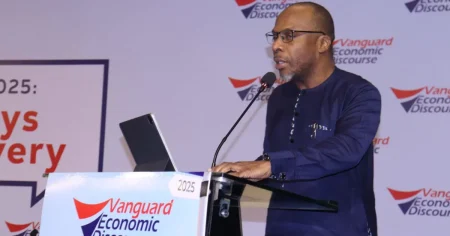President Bola Tinubu’s refusal to assent to the National Drug Law Enforcement Agency (NDLEA) Bill, 2025, has sparked a debate about the management of proceeds from drug-related crimes. The bill, passed by both chambers of the National Assembly, aimed to empower the NDLEA to retain a portion of these proceeds, a provision that the President deemed contradictory to established financial regulations. His decision, communicated to the House of Representatives, highlights the tension between granting operational autonomy to law enforcement agencies and maintaining stringent financial oversight to prevent misuse of funds. This clash underscores the broader challenges inherent in balancing the need for effective crime fighting with the imperative of transparent and accountable governance.
The core of the President’s objection lies in the bill’s proposed departure from the current procedure for handling proceeds of crime. Existing regulations mandate that all such proceeds be deposited into the government’s Confiscated and Forfeited Properties Account. Any disbursement from this account to a recovery agency, including the NDLEA, requires presidential approval, further subject to the scrutiny and consent of both the Federal Executive Council and the National Assembly. This multi-layered approval process ensures a system of checks and balances, safeguarding against potential misappropriation of funds. The NDLEA Bill, by seeking to bypass this established protocol and grant the agency direct access to a portion of the proceeds, raised concerns about potential loopholes and the weakening of financial accountability.
President Tinubu, invoking Section 58(4) of the 1999 Constitution (as amended), argued that the bill’s provision for the NDLEA to retain a portion of the proceeds undermines the existing framework for managing confiscated assets. He emphasized the importance of maintaining executive and legislative oversight over these funds to ensure transparency and prevent corruption. The President’s stance underscores the principle that public funds, regardless of their source, must be managed according to established procedures that prioritize accountability and prevent any appearance of impropriety. This principle is particularly crucial in the context of drug-related proceeds, given the potential for significant sums of money and the inherent risks associated with such funds.
The President’s decision raises questions about the balance between providing sufficient resources to law enforcement agencies and ensuring responsible financial management. While the NDLEA undoubtedly requires adequate funding to effectively combat drug trafficking, the President’s concern highlights the potential dangers of granting unchecked access to substantial financial resources. The risk of misappropriation or misuse of funds, particularly within an agency tasked with combating illicit activities, necessitates a robust and transparent system of financial oversight. This careful balancing act between operational needs and financial accountability is a recurring challenge in governance, particularly in areas like law enforcement where significant resources are required to address complex problems.
The debate surrounding the NDLEA Bill also touches on the broader issue of agency autonomy. While granting agencies greater control over their resources can enhance their operational effectiveness, it also raises concerns about potential overreach and diminished accountability. The President’s decision underscores the need for a careful consideration of the trade-offs between autonomy and oversight. Striking the right balance is crucial to ensure that agencies have the resources they need to fulfill their mandates while remaining accountable to the public and subject to the appropriate checks and balances. This requires a nuanced approach that recognizes the specific context and potential risks associated with each agency and its operations.
In conclusion, President Tinubu’s refusal to sign the NDLEA Bill highlights the complex interplay between resource allocation, accountability, and agency autonomy. His decision emphasizes the importance of maintaining a robust system of financial oversight, particularly when dealing with proceeds from criminal activities. The debate surrounding the bill underscores the need for a careful balancing act between providing adequate resources to law enforcement and safeguarding against the potential for misuse of funds. This requires a nuanced approach that considers the specific context and risks associated with each agency and its operations, ultimately aiming to ensure both effective crime fighting and transparent, accountable governance.












